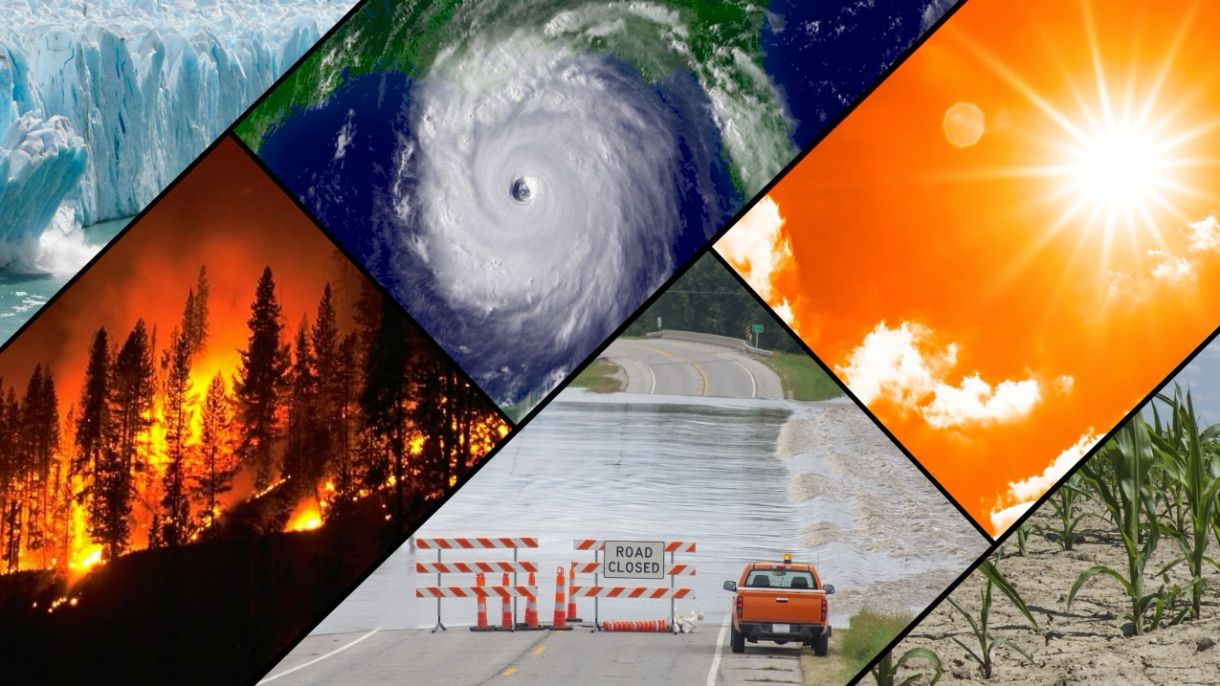By, Amir Hamzah Bin Kas Alwi
What is Climate Change?
Climate change refers to long-term shifts in temperature and weather patterns, according to the United Nations. Such shifts can be natural due to changes in the sun’s activity or volcano eruptions. But human works or activities have been the main factor in climate change, mostly due to the burning of fossil fuels like coal, oil, and gas. The frequency of extreme weather events is transforming ecosystems around the world and threatening entire species of plants and animals.
Increased UV Radiation and Skin Damage
The World Health Organization (WHO) states that human-made chemicals released into the atmosphere are responsible for ozone depletion, which will continue until the use of chlorine and bromine compounds is significantly reduced. WHO highlights those international agreements, particularly the Montreal Protocol, are successfully phasing out ozone-depleting substances. However, due to the long lifespan of these chemicals, ozone depletion will remain a problem for many years. Full recovery of the ozone layer is not expected until 2050.
More UV exposure could lead to skin DNA damage, accelerate aging, and give rise to diseases such as skin cancer. Individuals living near the equator or in highly polluted areas are more at risk. The most common forms of skin cancer, such as basal cell and squamous cell cancer, may appear on sun-exposed areas of the body, especially the face, neck, and hands.
Air Pollution and Skin Sensitivity
The 2019 Southeast Asia Haze was an air pollution crisis that affected several countries in Southeast Asia, especially Brunei, Indonesia, Malaysia, Singapore, and Thailand. It was due to illegal logging and burning practices, mainly in the Indonesian islands of Sumatra and Kalimantan, and then had spread quickly during the dry season.
Many pollutants are known to carry with themselves certain chemicals, called PAHs, which are common in city air and cigarette smoke. When these PAHs settle on our skin, it is usually the sun that can activate them, thus making them more irritating and giving more sensitivity. If this continues for quite a long time, it can lead to dryness, irritation, and, at times, some serious skin problems.
Climate-Driven Skin Conditions
Dry, cold air strips moisture from your skin, leading to tightness, itchiness, and redness. As aging, genetics, and the reduction of natural oil worsen, this can make your skin even more sensitive to irritation and cracking. If not taken care of properly, the skin barrier will break down and have a harder time recovering.
Hot weather brings its challenges, too. Increased sweat and oil production, combined with dead skin cells, can clog pores and trigger acne. Prolonged sun exposure will damage the skin’s moisture barrier, causing further dehydration and sensitivity.
How to Protect Your Skin in a Changing Climate
You need to shield your skin against UV radiation by applying sunscreen daily, even on cloudy days. Broad-spectrum SPF 30 or higher are recommended, and reapply them every three hours throughout the day, especially when you are outdoors. You are also encouraged to wear hats, sunglasses, and sun-protective clothing to minimize direct sun exposure.
Furthermore, use antioxidant-rich skincare products like those with vitamin C, E, or niacinamide to fight pollution’s harmful effect and protect your skin from pollution-related skin damage. Additionally, maintain indoor air quality with purifiers or plants that filter toxins.
When comes the hot weather, use lightweight, oil-free moisturizers to avoid clogged pores in humid conditions and hydrating mists to keep skin fresh. When it comes to the cold weather, use thicker moisturizing creams to protect skin from dryness and irritation.
It is also important to stay hydrated and nourished because it is essential for skin health, especially in extreme heat. Food rich in omega-3s, such as fish and nuts, and antioxidants like berries and leafy greens help the skin defend itself against environmental damage.***
- Islamic University VC Engages with IIUM Community on Integrating Shariah Law into Bangladesh’s Legal System - January 28, 2026
- SISCO Launches Certified Course on Visionary Leadership and Community Engagement at IIUM - January 28, 2026
- Memorandum of Understanding (MoU) Signing Ceremony between IIUM and Aafiyat Holdings Sdn. Bhd - January 28, 2026
